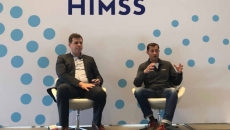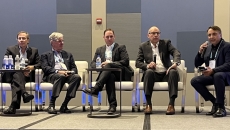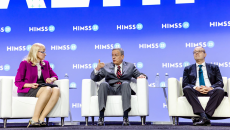HIMSS23
At HIMSS23, Holly Maloney, managing director of General Catalyst, discussed the promise and challenge of using artificial intelligence in healthcare.
Changes in reimbursement and payment policies are impacting remote patient monitoring.
Color-coded visualizations reduce cognitive burden and improve workflows and care quality, says UVA doctor.
While the hardware still has catching up to do, quantum-based machine learning is already outperforming classical models.
At HIMSS23, panelists discussed health systems' financial challenges as labor costs rise and the population ages.
CHICAGO – "Without health there is nothing," said Hans Kluge, Regional Director for Europe at the World Health Organization, during the morning keynote Thursday at HIMSS23.
Albert Marinez, chief analytics officer at Intermountain Healthcare, offers perspective on artificial intelligence for performance improvement: building effective models with "AI building blocks," getting buy-in from various stakeholders and more.
HIMSS23
Check out some of the major topics of the day and conversations with healthcare IT leaders at the 2023 HIMSS Global Health Conference & Exhibition in Chicago.
John Welch, chief product officer at Sphere, a HIMSS23 exhibitor, addresses the changing world of healthcare financial technology.
And various kinds of AI can help with an array of healthcare issues, especially the staffing shortage and burnout, contends HIMSS23 attendee Dr. Nirav S. Shah of NorthShore – Edward-Elmhurst Health.









